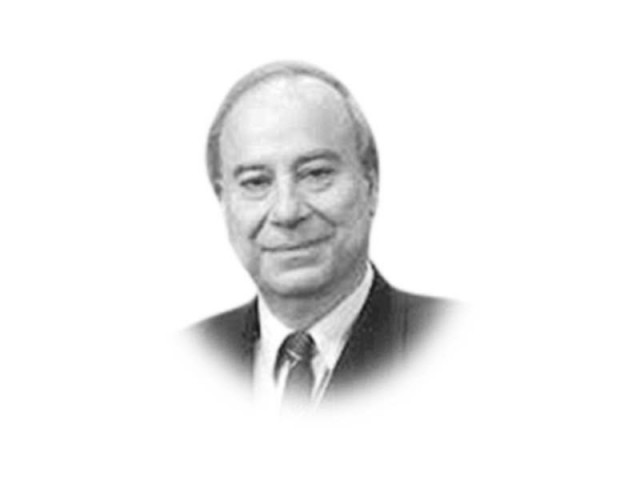A great Christian friend
I had the honour of travelling to Lambeth Palace, the Archbishop of Canterbury’s official residence in London

The writer is Ibn Khaldun Chair of Islamic Studies at the American University, Washington, DC. His latest film, Journey Into Europe, has just been released and he is completing the parallel book for Brookings Press
The archbishops of Canterbury may well be best known for their high-profile clashes with English monarchs, always in earnest striving to defend the power and honour of both their post and the Anglican Church. Williams himself may be best remembered for a more peaceful legacy. His tenure as archbishop is fondly remembered for his strong outreach to the Muslim community and his bold initiatives in bringing the Muslim and Christian communities closer together — initiatives that at times challenged Britain’s status quo. Williams stirred a hornet’s nest during his tenure when he made the argument that the sharia and English laws were in fact compatible. The statement sent British politics into an uproar. Yet, this sharia controversy, in continuing a storied tradition of Archbishops challenging the English status quo, went on to confirm Williams’s place as an extraordinary intellect prepared to see out a logical path on the basis of his own intellect and intuition, not mere public opinion.
Since his retirement, Williams has returned to academia and now serves as Master of Magdalene College at Cambridge University. He has continued his outreach to the Muslim community through many avenues, including lectures to such Cambridge establishments as the Cambridge Muslim College. He has also written a critically acclaimed analysis of the theology of Augustine of Hippo, one of the foundational Christian theologians, titled “On Augustine”. Rev Williams has graciously granted me several sessions throughout his storied career to discuss Christian-Muslim relations. When conducting research for my latest project, Journey into Europe, Williams agreed to sit with me and discuss on camera Christian-Muslim relations, particularly in the context of European identity, and how he believed the two religions could be brought closer together. When asked about European identity, Williams almost immediately discussed the key role Islam has played in European history and civilisation. Not only did he see a strong legacy in the Golden Age of Andalusia for Christian-Muslim harmony, he also viewed Sicily, Eastern Europe and the entire Mediterranean basin as key examples of Islam’s positive influence on European society. He recalled, “I remember a conversation with a British politician a few years ago, just as the Arab Spring was beginning, and we agreed that what we really needed to do was to reinvent the Mediterranean, in the sense that around that great inland lake, the great sea, as it was called in classical culture, there was this extraordinary melting pot and interaction, by the classical, Islamic and Byzantine civilisation. And it is one, it’s one conversation, it’s one story, that’s part of Europe too.”
Williams was keenly aware of the harmful effects of stereotyping and the extent to which the negative image of Islam and Muslims was making it difficult for non-Muslims to accurately understand Islam. In our discussion, Williams said, “Even at the level of government and educated public discourse, you still hear strange words like ‘Islamist,’ and I’m a bit puzzled by a word like that. You still hear this curious distinction between ‘moderate’ and ‘radical’ Muslims, that is ‘nice’ and ‘nasty’ Muslims.”
Yet, in his eyes, such simple categorisation in attempting to understand the Muslim community in the West reflect a deeper issue at hand — a wider sense of alienation that one feels from one’s neighbours. He explained, “The phenomenon of Islamophobia reflects some of that. Waking up and thinking, ‘I don’t know what my neighbour’s thinking. They could be thinking anything. They could be planning anything.’ A panic reaction. When you realise that you’ve not really got close with your neighbours, you can either panic, or say, ‘Well I guess it’s time I started, isn’t it?’ Either you react by projecting all sorts of mysterious and terrible things onto them, or you sit with them and listen.”
Even given these divides, though, Williams was still able to point the way forward for us in building bridges and fostering peace. In particular, he explained it vital that Europeans take the time to understand both Islam and the stories of their Muslim neighbours. He explained, “We in Europe … simply need to educate ourselves about what Islam really is. We need to listen really hard to the average Muslim neighbour … to the real variety that you can see outside any mosque on a Friday. So listen to the experience of those who unobtrusively, but faithfully, living ordinary Muslim lives fully within our society. Listen to them.”
As we parted ways, Williams prayed to God to enable members of different religions to come together: “May God … open our hearts and our ears to one another. And may God … whose will is for our peace and our well-being lead us hand in hand towards a true worldwide community in which none is forgotten, none is oppressed, none is humiliated. Amen.”
It is precisely in this spirit that we, whether Christian or Muslim, should reach out and embrace each other. As Pakistanis, it is well worth remembering, especially in view of the persecution of Christians today, that the Quaid-e-Azam spent his only Christmas as Governor General with the Christian community in a church in Karachi. In a world where Muslims feel under siege, wise and compassionate friends like Williams are crucial to build bridges of understanding between the religions.
Published in The Express Tribune, June 18th, 2016.
Like Opinion & Editorial on Facebook, follow @ETOpEd on Twitter to receive all updates on all our daily pieces.
















COMMENTS
Comments are moderated and generally will be posted if they are on-topic and not abusive.
For more information, please see our Comments FAQ